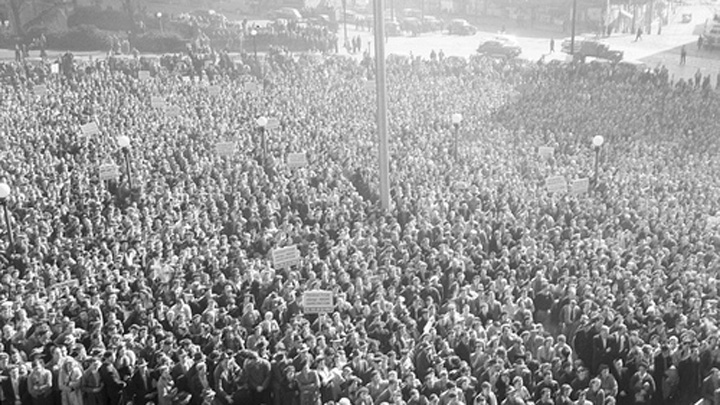Where has our voice gone?

When we were younger we used our voice to make change happen. If the government did something we didn’t like, if the unions had something to advocate, if there was injustice in our lives, we would stand up and unite to vocalise our feelings and change it.
We were the generations that fought for what we wanted, all over the world. We lead the protests around women’s rights, civil rights, racial equality and peace.
So what happened? Where have the voices of our country gone?
Do we just not care anymore? That can’t be the answer. We’re still passionate people that want the best for ourselves, and care about the lives of others and what goes on in our country. Just take a look at the discussion generated on articles about everything from immigration to the budget on Starts at 60.
Do we fear judgment and torment from others for our opinions? That can’t be the answer either. We are willing to share our opinions on social media and (rightly or wrongly so) criticize others for theirs.
So what is it? What has changed in the way we fight for our rights?
The one incredible difference between the way we lived in the 1960s and now is technology. Maybe that is the culprit…
Do we voice our opinions and fight for our rights on social media and online without realising that we aren’t making a difference?
Looking back to the protests of the past, change was often motivated by people power – and it was people that weren’t afraid to get their hands dirty. A significant demonstration that springs to mind is the 1971 Springbok demo at the Tower Mill Motel in Brisbane. It was a huge clash between police and protesters, all in the name of voicing disgust at the apartheid regime in South Africa. Police were said to have charged at the protesters, leading to many injuries (some serious) and several arrests.
It was an historic protest and it was the beginning of a time of great change in Queensland.
So many protests of the past had various elements in common.
Firstly, protestors were banded by a common theme. It may have been to change something, it may have been to cease something, it may have been to accept something or it may have been to start something. But they had a purpose and a goal.
Secondly, they were obvious. They were held in public places in front of offices and buildings of the decision makers. Protestors knew who had the power to achieve their goals and they blatantly targeted those organisations or individuals.
And thirdly, they were loud. Protestors gave their voice and didn’t stop until it was heard. They yelled, chanted, wrote and celebrated their theme until it was heard.
When we say something on Facebook or Twitter, our “friends” and “followers” see it. The reach of our statements is finite. Sure, we’re sharing our opinions but no one of influence actually hears our own voice.
Do we think we’re fighting for change when really we aren’t? What are your thoughts on the modern-day “protest”? Tell us in the comments below…









 Proudly Australian owned and operated
Proudly Australian owned and operated